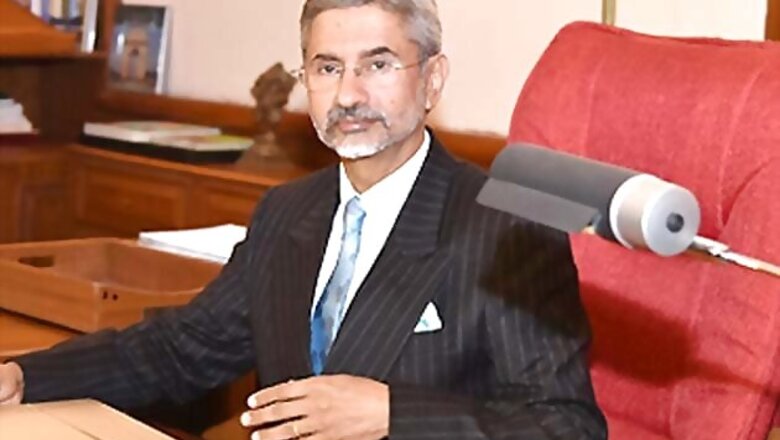
views
'The road to hell is paved with good intentions.'
When Subrahmanyam Jaishankar, India's new foreign secretary sits down to formally begin negotiations with Pakistan after a break of over six months, he will do well to remember this old proverb. The Pakistanis will be the most generous hosts he has encountered, certainly more hospitable than the Chinese or the Russians, two countries the Foreign Secretary is extremely familiar with. But as he savours the saag with makai ki roti and chhikarr cholay (the FS is vegetarian, so no kebabs for him), he will have more than just a gastronomic minefield to navigate.
The Pakistanis have been telling anyone who would care to listen, both publicly and privately, how desperate they are to re-start the talks. One part of this is due to internal dynamics and the other part due to external influences. The internal dynamics changed, some say irrevocably, after the Peshawar attack where more than a hundred schoolchildren were killed. This was Pakistan's 9/11 moment. The moment where the country and its leadership finally realised that they cannot carry on with this bogey of feeding the terror machine and yet crying victim whenever the machine turns on them.
For India, no matter how the Modi government couches it, 'SAARC yatra', 'cricket diplomacy' etc, the fact is this is a resumption of bilateral talks. And that's not a bad thing. Both sides have been downplaying expectations. Last Friday when Jaishankar met Senior Editors over lunch he was lamenting that he doesn't know who he is even supposed to talk to in the Pakistani establishment. While Jaishankar will meet a host of folks in the civilian leadership from Nawaz Sharif to Sartaj Aziz to Tariq Fatemi, the one person he won't be meeting, but should have, is the Pakistan Army Chief General Raheel Sharif.
GHQ is now the new power centre in Pakistani foreign policy. And not for the first time. In the case of General Sharif just look at the rockstar reception he has received in Washington, London and Beijing in recent visits. The Americans, Brits and Chinese know who to talk to in Pakistan. Unfortunately our foreign policy establishment has no channels of communication with the Pakistani military leadership.
In a short span, General Raheel Sharif (no connection to the PM despite their common surname) has managed to win the trust of both the political leadership and the public at large. Operation Zarb e Azb which many see as his baby is beginning to bear fruit. More than 12,000 alleged terrorists have been rounded up in one of the biggest campaigns that Pakistan has ever seen, after the National Action Plan was approved in December. In January, military courts started trying the first terror cases. And most importantly, all of this is being done by an Army Chief who seemingly doesn't have any political ambitions.
And that's changing the dynamics between the Pakistanis and the Afghans in pretty remarkable ways. The Pak COAS has visited Kabul three times since the Peshawar attack. Ashraf Ghani, Afghanistan's new President has already visited Pakistan despite not visiting India. The strategic equations are changing between Islamabad and Kabul. And it doesn't leave New Delhi with too many options, nor does it give India too much strategic depth in Afghanistan post the complete drawdown of US and NATO troops.
India prefers to see this renewed engagement with Pakistan differently. A top Indian diplomat recently told me, "Although we have de-hyphenated from the Pakistanis a long time ago, we tend to give them too much bhaav." India would now want to see Pakistan as just another SAARC member. Nothing more, nothing less. Therefore the most we can expect from Mr. J's trip to Islamabad will be on the SAARC front. Agreements like the Motor Vehicles Act, Most Favoured Nation status etc are low hanging fruit which both sides can easily claim. The real challenge would be when we get to the more substantive issues like Kashmir and terrorism. Alas, a lot more water will have to flow down the Sutlej before we get to that.




















Comments
0 comment